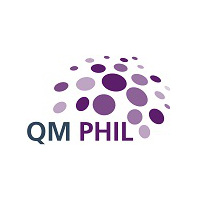Fundamentals of Quality Management at the Faculty of Arts and Humanities
Vision
The Faculty of Arts and Humanities of the University of Cologne sees it as it responsibiliy to offer high-quality and attractive degree programs.
It is intended to provide students with higher education that will enable them to pursue their future careers with personal success, professional competence and social responsibility.
The fundamentals of this is:
- high-quality academic research;
- its framework is determined by the vocational field orientation.
The courses on offer are aimed at students who are highly motivated and able to work autonomously in an academic institution.
In order to consistently improve and further develop the quality of its courses, the Faculty strives to establish a comprehensive quality management system within the framework of its financial and personnel resources. It initiates, regulates and implements quality processes that correspond to the vision of academically-orientated and professional higher education.
In this, the Faculty is faced with the challenge of developing its own set of quality instruments, which will serve the:
- requirements of academic institutions,
- the competence of the teaching staff,
- the expectations of the students and
- the demands of the public.
The quality management of the Faculty is based on the instruments developed in the economic and management discussions from the last decade as well as on the evaluation standards that have emerged from discussions on Higher Education.
In accordance with the tradition of the European university idea, the Faculty considers teaching staff and students to share the responsibility for high-quality teaching. It therefore wants to involve all of the involved parties in its quality management.
The Quality Management of the Faculty endeavours to ensure that it is compatible with the target agreements which the University reached with the state of North Rhine Westphalia as well as with the legal framework requirements to which academic work in teaching and research are subject. The Faculty considers Quality Management a systematic integrated component of a comprehensive restructuring process that German universities are undergoing.
The formal structures and material measures of Quality Management are being developed and applied in close cooperation with the introduction of MA/BA degree programmes, modularisation, the question of accessible third level education and the reorganisation of teacher training.
Institutions
In order to achieve its quality concept, the Faculty has developed an infrastructure that is tasked with strategic decisions, planning and the operative implementation of quality measures:
- the Dean has the leadership responsibility for quality management;
- the Faculty has appointed a Quality Officer who is responsible for the conceptual management of all quality processes at the Faculty;
- it has set up a Commission for Quality Management gebildet, which makes strategic decisions and
- it has set up an Office for Quality Management that is responsible for the operative implementation.
This all provides the infrastructural prerequisites for university-compatible quality management.
Evaluations
One of the core tasks of this quality management system is to carry out evaluations at various levels. These are, on the one hand, teaching evaluations of the individual degree programs of the Faculty stipulated by law and specified by the University evaluation regulations.
On the other, the evaluation office initiates and supports further evaluative and quality measures:
- self-evaluation of individual courses;
- the preperation and implementation of graduate surveys;
- the execution and evaluation of faculty-wide staff surveys within the framework of the workplace health managment of the University of Cologne.
Accompanying Processes
The quality of a degree program largely depends on the financial, human and material resources that the Faculty provides. The state of North Rhine Westphalia is responsible for the facilites at public universities. The Faculty of Arts and Humanities sees it as its obligation to optimally utilize the resources it is provided with.
Therefore, Faculty Quality Management pays special attention to the formation of the accompanying processes.
The objective is that the Faculty compiles a
- Quality Handbook
that provides teaching staff with recommendations for the
- organisational execution of courses,
- examination processes and the
- supoort of students.
It continues to strive to maintain quality standards for
- library services,
- administration and
- facility managements
and to develop other institutions as well as to adhere to and expand these standards.
In view of the increasingly complicated study and examination processes, the Faculty places particular emphasis on the development of its own
- Consultation Concepts
that define all information services at the Faculy qualitatively and quantitatively and coordinates them with non-faculty information services.
Lastly, the Faculty sees in the development and systematic implementation of a
- structured complaint management system
the systematic validation of the students' perspectives on teaching and studying in all quality processes.
Staff Development
Staff development measures are at the heart of the Faculty's internal quality management system. Within the framework of its limited resources, the faculty focuses on a targeted improvement of
- the teaching and management skills of its lecturers.
To this end, it has begun to expand the relevant and thus far well-received training course program.
